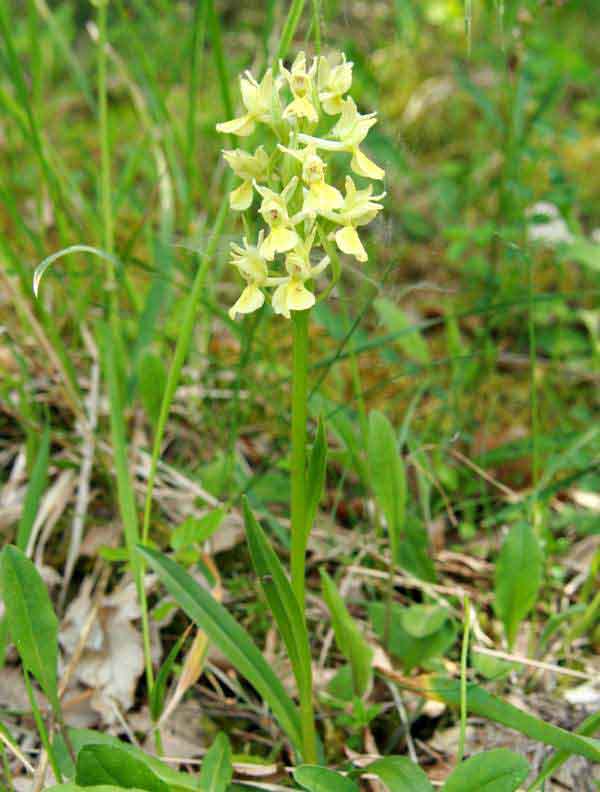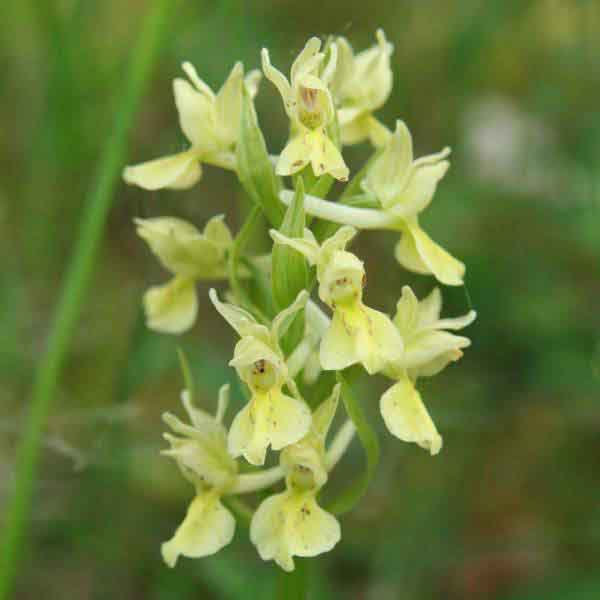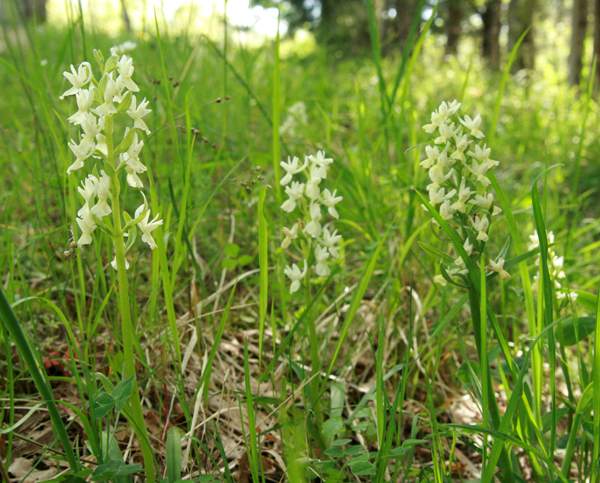Orchis provincialis - Provence Orchid
Phylum: Magnoliophyta - Class: Liliopsida - Order: Orchidales - Family: Orchidaceae

Description
Orchis provincialis grows to between 15-35cm tall and has 3-8 near-erect basal leaves which are strongly marked with dark purple spots. There are further smaller leaves clasping the upper part of the stem. Each lax inflorescence bears between 5-20 large flowers. The sepals and petals are cream and the lip, which is laterally folded, has a darker yellow centre with fine deep red dots. The spurs at the rear of the flowers are pointed towards the tip and curve slightly upwards.

Often confused with Orchis pauciflora, this plant is taller and carries many more flowers on each infloresence than does Orchis pauciflora which is comparatively stunted in its appearance and with far fewer, although often larger flowers. The flower-head of Orchis provincialis is longer and oblong-shaped whereas that of Orchis pauciflora is rather uneven and untidy-looking.
Distribution
Predominantly a Mediterranean species, the Provence Orchid can be found on the Iberian Peninsula (in Spain but not, so far, recorded from Portugal) and eastwards as far as the Balkans. It is also in Bulgaria and Crete.
Habitat
This orchid grows in open or bushy grassland and sometimes in sparse woodland. It is rare and localised.

A perfect oblong-shaped infloresence of Orchis provincialis
Flowering times
The Provence Orchid flowers from March to April.
The specimens shown on this page were photographed in Crete.
Etymology
The genus name Orchis means 'testacles', a reference to the twin tubers of orchids in this genus. The specific epithet provincialis means 'from Provence'.
Reference sources
The Plant List
Sue Parker (2014) Wild Orchids of the Algarve - when, where and how to find them; First Nature
Chris Thorogood and Simon Hiscock (2014) Field Guide to the Wildflowers of the Algarve; Kew Publishing
Pierre Delforge (2005) Orchids of Europe, North Africa and the Middle East; A&C Black
Fielding, Turland and Mathew (2005) Flowers of Crete; Kew
Please Help Us: If you have found this information interesting and useful, please consider helping to keep First Nature online by making a small donation towards the web hosting and internet costs.
Any donations over and above the essential running costs will help support the conservation work of Plantlife, the Rivers Trust and charitable botanic gardens - as do author royalties and publisher proceeds from books by Pat and Sue.


